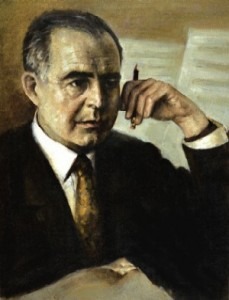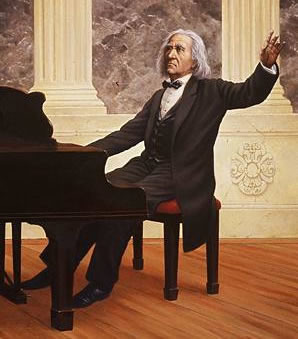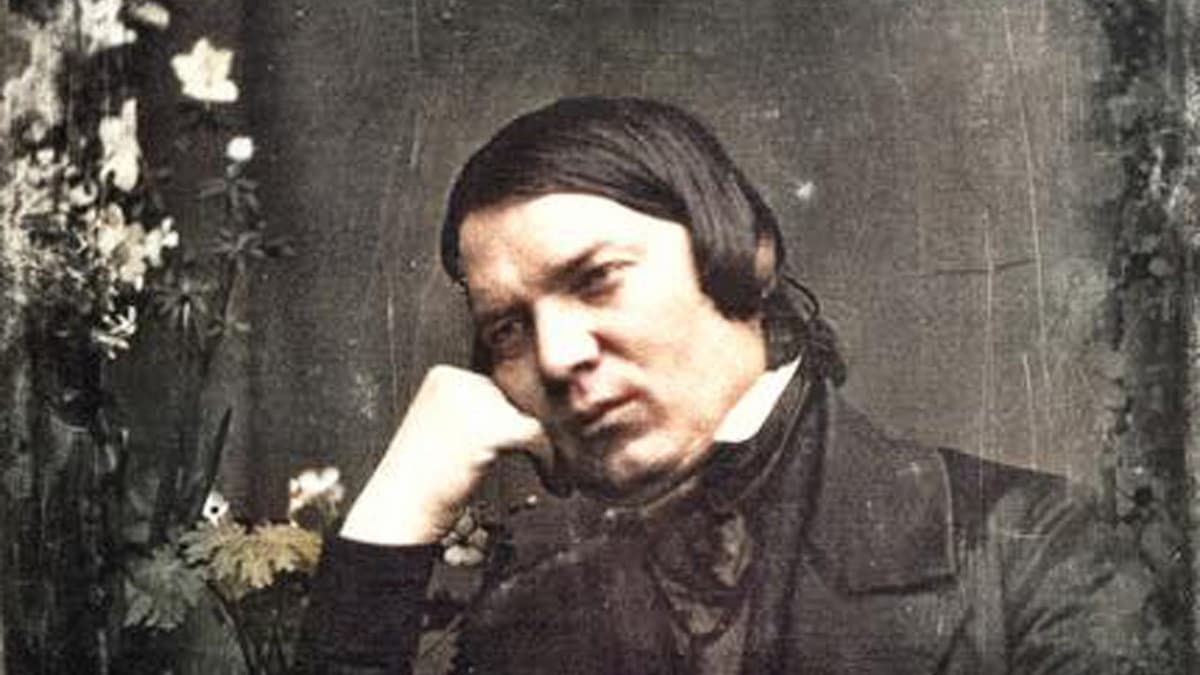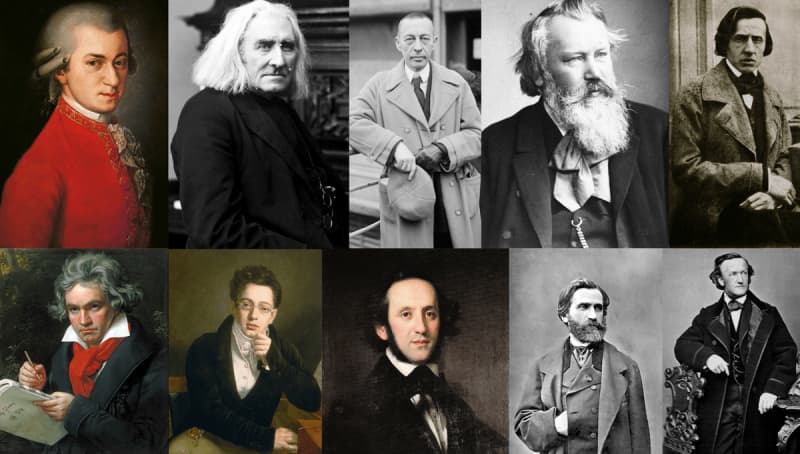
Samuel Barber
Credit: http://www.naxos.com/
Pauer’s key characteristics for B flat minor is that it is “…a key full of gloomy and somber feeling, like E flat minor, “ and he goes on to note that it is little used.
There’s nothing by Mozart in B flat minor, but we can find it in the music of Tchaikovsky. His Piano Concerto No. 1, written after Pauer completed his book, is nonetheless a work that should almost be emblematic of this key. The work opens with 4 emphatic chords, all in B flat minor and from there, we have both the gloom of the key and its passionate counterpart in the theme in D flat major (you might remember that Pauer characterized D flat major as “fullness of tone, and it sonorousness and euphony.”)
Tchaikovsky: Piano Concerto No. 1 in B-Flat Minor, Op. 23: I. Allegro non troppo e molto maestoso – Allegro con spirit (Gary Graffman, piano; Cleveland Orchestra; George Szell, cond.)
Other Russians also wrote in this key, including Rachmaninoff, Shostakovich. Let’s look further afield, to 1936 America, to find another significant work in B flat major. Inspired by reading Virgil’s Georgics, American composer Samuel Barber wrote his Adagio for Strings. He had originally intended it to be the slow movement for his Op. 11 String Quartet, but it took on a life of its own in the hands of conductor Arturo Toscanini. Barber had sent the orchestrated score to Toscanini and it was returned with no comments because Toscanini had memorized the score and was planning to perform it live on radio. Toscanini recorded it, took it on tour to South America and Europe and was a strong advocate for the work. In 1942, Eugene Ormandy and the Philadelphia Orchestra played and recorded the work at Carnegie Hall in New York.
The work has Pauer’s gloomy and somber feelings, and other critics have spoken of it as having elements of uneasiness, hesitancy, and being “full of pathos and carthatic passion.”
Barber: Adagio for Strings (Philadelphia Orchestra ; Eugene Ormandy, cond.)
What pieces do you think should be added here? Keep in mind that the piece should date from before 1876, when Pauer’s book was published. Another guideline might be to note the relatively small list of composers he gave as examples: Haydn, Mozart, Beethoven, Mendelssohn, Schubert Rossini, Weber, and Spohr – all stalwarts of German classicism / romanticism.








Literally the saddest of all keys for me
Chopin – Nocturne No.1 B-flat minor